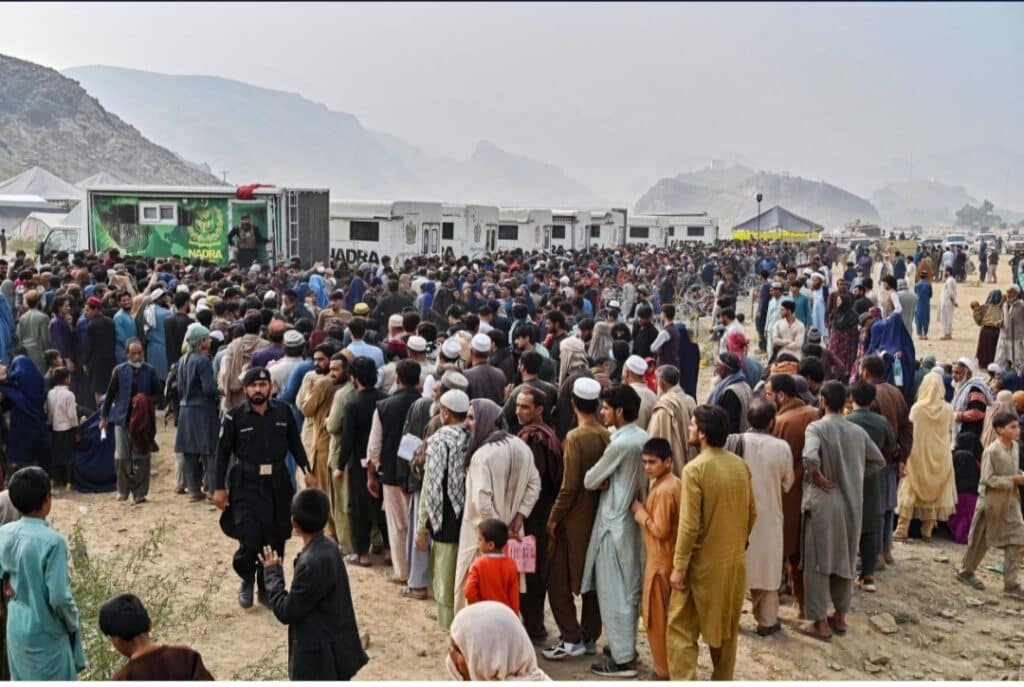The deadline for the voluntary repatriation of undocumented Afghan nationals from Pakistan has expired, but due to Eid celebrations, the government has extended the enforcement of arrests and deportations until April 10.
Pakistan has decided to repatriate 3 million Afghan nationals as part of a nationwide operation launched in October 2023 against undocumented foreign residents. According to the Afghan Commissionerate, the deportation process was set to begin on April 1, but the Eid holidays have pushed the enforcement date to April 10.
According to the United Nations refugee agency, nearly 845,000 Afghans have left Pakistan over the past 18 months. Currently, there are approximately 3 million Afghans in the country. Among them, 1,344,584 individuals possess Proof of Registration (PoR) cards, while 807,402 hold Afghan Citizen Cards (ACC). The remaining 1 million Afghans are living in Pakistan without any legal documentation, making their stay entirely unlawful.
Authorities have stated that strict measures will be taken to prevent deported Afghans from re-entering Pakistan. Afghan Citizen Card holders were required to voluntarily leave Pakistan by March 31; failure to do so will result in their deportation. Meanwhile, PoR cardholders are permitted to stay in Pakistan until June 30. Afghans awaiting third-country resettlement must vacate Islamabad and Rawalpindi by March 31.
Officials have affirmed their cooperation with international diplomatic missions to facilitate the resettlement of Afghan nationals. However, if these efforts prove unsuccessful, such individuals will also face deportation.
Following the Taliban’s takeover in 2021, thousands of Afghan nationals fled the country, with many approved for resettlement in the United States under a program assisting individuals at risk due to their previous work with the U.S. government, media, humanitarian organizations, or human rights groups. However, the suspension of the U.S. refugee program by former President Donald Trump in January has left 20,000 Afghan nationals in a state of uncertainty.
To support the deportation process in Khyber Pakhtunkhwa, two transit stations will be established—one in the Nasir Bagh area near Peshawar and another in Landi Kotal, approximately seven kilometers from the Torkham border crossing.





